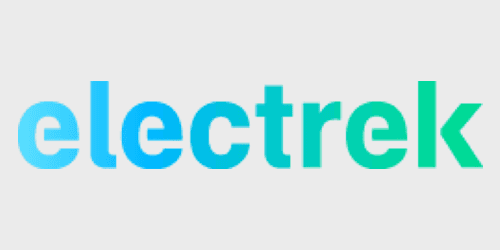
Ford will soon convert reservations for the all-electric Mustang Mach-E into official orders. Mark Kaufman, the vehicle’s global director of marketing distribution, told Electrek that test drives will be critical for a successful launch of Ford’s electric crossover. Therefore, the company is beginning to plan how to get prospective buyers behind the wheel, even if pandemic-related physical distancing orders are still in place.
Kaufman downplayed rumors about a potential delay in Mach-E deliveries while acknowledging that the pandemic has created some uncertainty. “When we get our plant up and running, we’ll make announcements at that time,” he said. “The situation is quite dynamic.” Until then, Kaufman said there are no changes to the timeline.
Nonetheless, he said in about “three to four weeks,” Ford will finalize the date in summer 2020 when reservations will be converted to orders. Ford previously announced that First-Edition and Premium models will be delivered starting in late 2020. GT models first arrive in summer 2021.
In early March, when the pandemic’s impact was on the rise, Ford experienced an increase in cancellations for the Mustang Mach-E for about two weeks. Kaufman said:
We saw the cancellations bubble up. It was one tiny little blip, and after that, there was no significant change.
Ford returns a $500 deposit after a cancellation.
The Mach-E marketing team was counting on a busy full-year schedule of events, auto shows, and major sporting events to show off the all-electric Mustang crossover. Those events could have bolstered the reservations, but they aren’t happening due to the coronavirus.

As a result, it becomes even more important that reservation holders and other interested buyers can go to a dealership, kick the tires, and take a test drive. Kaufman said:
Test drives at the local dealerships are going to be a big part of that continued awareness and word of mouth for the product. We know that people just need to sit in the vehicle and test drive it. I’ll be shocked if anyone is not grinning ear to ear after a test drive.
So the company is leveraging knowledge gained from development engineers who are working from home and who are exchanging prototype Mach-E models with one another.
We identified and reviewed the process of how to properly clean the vehicle with doctors and experts to make sure that we’re doing that properly.
A lot of what we’re already doing internally for how to properly wipe down the vehicle will be used to make sure there are no concerns at all for test drives. And we’re going to do that in a way that is very safe for customers and our dealership employees.
Kaufman confirmed that the company continues to take reservations online, in which customers select the local dealership where to take delivery. Dealers are also preparing to make contactless deliveries of the Mach-E for those who elect to skip a test drive and take ownership immediately.
Not only going after early adopters
About 2,100 of Ford’s 3,000 Dealerships are EV-certified. Every EV-certified will have a test drive vehicle. These test models will arrive roughly at the same time that the first Mach-E models are delivered to customers in late 2020. And nearly at the same time, service and collision parts will be stocked for dealers.
Kaufman suggested that Ford’s sales and service network provided a key advantage for Mach-E owners “over the people who are owning products from newer OEMs.” Obviously, that was a veiled dig against Tesla, which historically has had difficulty in providing prompt repairs for some customers.
He believes that Ford’s 2,100 EV-certified dealers and service departments differentiate the company from Tesla’s smaller network of a couple hundred retail and service locations in the US. Meanwhile, Ford will need to overcome a track record of not having onsite experts knowledgeable about EVs.

Ford believes that it will have an EV expert at all of its dealerships, which will be essential for helping Mustang Mach-E customers less familiar with questions about such issues as range and charging.
“We’re not just trying to chase the early adopters,” said Emma Bergg, a Ford spokesperson. “Not everybody is going to be the person that only wants to watch YouTube videos [before buying an electric car].”
Kaufman also acknowledged that Ford’s purchasing teams had to make quick adjustments because of supply chain disruptions after the coronavirus. He recounted the story of one of the Mustang Mach-E’s parts coming from Wuhan, China. “There were some initial concerns from our purchasing team,” he said. “But our engineering and purchasing teams worked with that supplier to change where the parts were physically made to keep our timing on track.”
Electrek’s Take
Ford could have an advantage in selling and servicing EVs through its vast network of 2,100 EV-certified dealerships. But that opportunity also represents a big challenge.
The type of mainstream buyers that Ford is trying to attract with the Mustang Mach-E will have lots of questions and could be less gung-ho than previous waves of EV adopters.
That means Ford will need to be flawless in the training of its sales force and service technicians. Only time will tell if they can execute — a challenge made even greater by the pandemic.
FTC: We use income earning auto affiliate links. More.


Comments